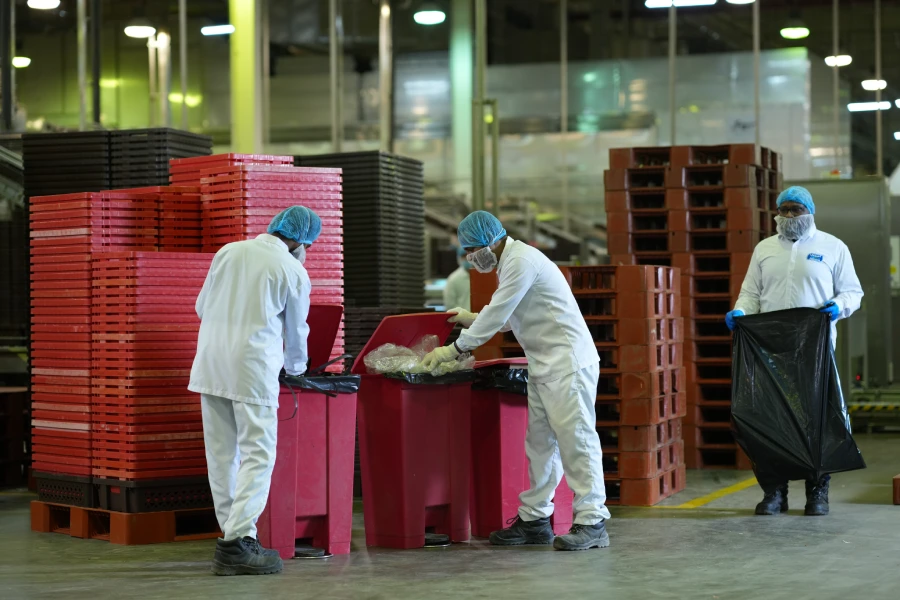
Our goal is to reduce the amount of waste sent to landfills by 2025 by 50%, compared to levels recorded in 2018.
Almarai recognizes the importance of dealing with waste in a manner that does not negatively impact the environment. Our waste management approach is therefore built on the mitigation hierarchy principle of source reduction, reuse, recycling/recovery, and responsible disposal. By actively reducing waste, investing in recycling equipment, and optimizing systems and procedures to reuse waste, we hope to achieve our goal of reducing waste to landfills.
To enable this, we have started to take deliberate steps to reduce waste in all its forms. For
instance, we prioritize the recycling of packaging and other waste
produced during our manufacturing and distribution operations, ensuring that we not only reduce our
environmental footprint but also contribute to a circular
economy. In our efforts to minimize food waste, we consistently enhance our demand forecasting for
precision and reduction. We also collaborate and engage
with waste management firms to recycle challenging materials like shrink wrap, diverting them from
landfills by reusing them into alternative materials.
To further strengthen our waste management efforts, we have formed a waste steering group dedicated to
facilitating information exchange and developing
strategies to reduce landfill waste. This group includes representatives from various departments,
promoting a comprehensive approach to waste management.
Recognizing that effective waste management is a collective responsibility, we have also started to
involve our workforce in our environmental mission. We
have initiated a series of measures, including an enhanced communication campaign, to foster a culture
of waste consciousness. These initiatives aim to educate
and engage our employees, encouraging them to take personal responsibility for waste reduction and to
apply best practices in their daily activities.
Adhere to mitigation hierarchy principle of source reduction, reuse, Comply with legal requirements and adopt global best practices. recycling/recovery, treatment and responsible disposal.
Comply with legal requirements and adopt global best practices.
Improve its waste performance across farms, factories, warehouses and offices.
Continuously improving its waste management systems by setting measurable goals, monitoring progress, and transparently reporting on waste reduction achievements.
Recycled 21% more the amount of waste vs. 2023.
Food waste resold to Animal feed increased by 95% in 2024 (62,879 metric ton) compared to 2018 baseline (32,175 metric ton).
53% of waste going to landfill, compared to 70% for the 2018 baseline.
In 2024, Almarai's waste management initiatives achieved substantial progress, with a 21% increase in the amount of waste recycled compared to the previous year. While the sale of food waste to animal feed saw a 15% reduction from 2023 levels, the figure remains notably high at 95% relative to 2018, underscoring the company's dedication to minimizing waste. Furthermore, Almarai has made significant progress in reducing the volume of waste sent to landfills, with only 53% of waste disposed of in this manner, a considerable improvement from the 70% reported in 2018. We have also continued to expand our partnerships with third-party providers to divert food and dairy waste to animal feed programs. A new partnership has also been initiated with a third-party provider in Dubai, who recycles packaging and reclaims water for reuse through reverse osmosis.
Almarai has been working with National Center for Waste Management (MWAN) to develop an industry specific waste management guideline to promote circularity throughout Saudi Arabia. This partnership underscores a collective dedication to sustainable practices and collective environmental responsibility to divert more waste from landfills.

Goal/Target
Progress
Reduce waste going to landfill across all our divisions by 50% by 2025 (against a 2018 baseline)